
About Cardiovascular Diseases
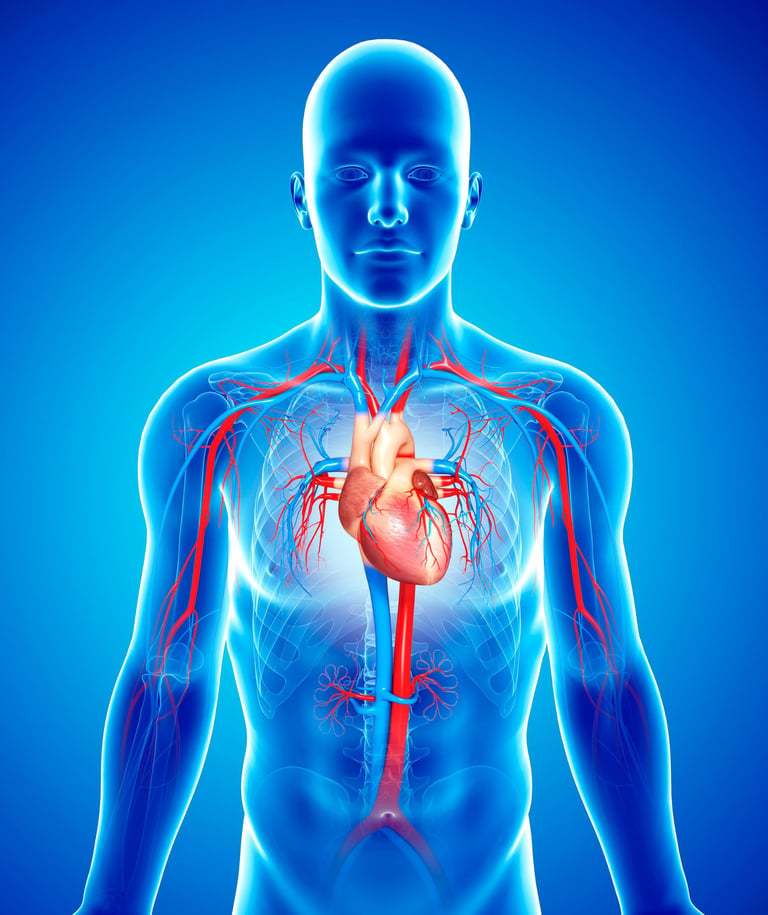

Cardiovascular diseases (CVDs) are a major threat to human health and the leading cause of death globally. The term refers to a wide range of disorders affecting the heart and blood vessels, from silent conditions like hypertension to potentially fatal heart attacks and strokes.
The Threat of Cardiovascular Diseases
According to the World Health Organization (WHO), CVDs cause approximately 17.9 million deaths annually, accounting for 32% of all global deaths. The majority of these are due to strokes and heart attacks.
High Mortality Rate
Significant Economic Burden
The treatment and long-term care for CVDs require immense medical expenditures, placing a heavy financial burden on individuals, families, and society. This includes costs for medication, surgery, rehabilitation, and lost productivity.
Broad Patient Base
CVDs are not limited to the elderly; a growing number of young people are also at risk due to unhealthy lifestyles. High blood pressure, high cholesterol, and diabetes are the main risk factors, and these conditions are becoming increasingly common worldwide.
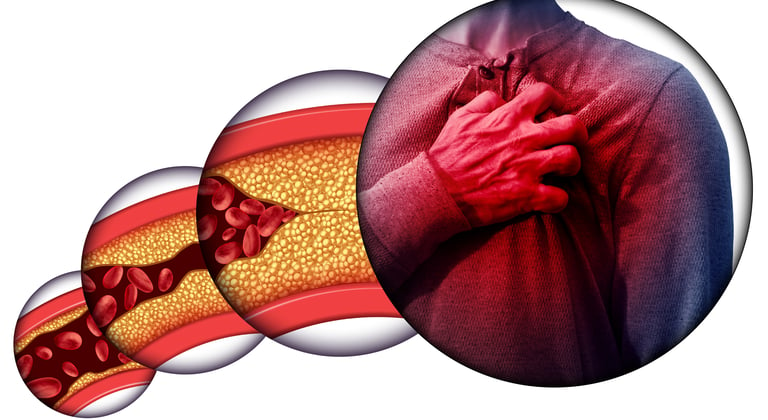

The Threat of Cardiovascular Diseases
Common Types
Coronary Artery Disease
Cerebrovascular Disease


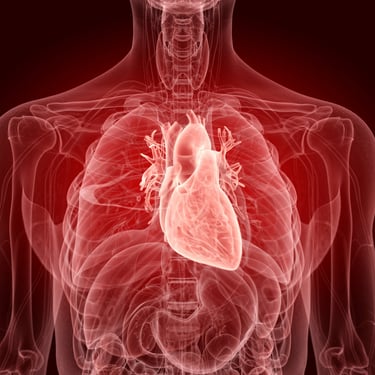
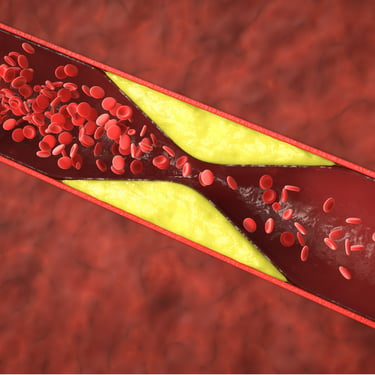
Hypertensive Heart Disease
Narrowing or blockage of the coronary arteries, leading to myocardial ischemia, which can cause angina or a myocardial infarction (heart attack).
Disorders affecting the blood vessels in the brain, most commonly stroke, which occurs when blood supply to the brain is interrupted or a blood vessel ruptures, causing brain cell death.
Changes in the heart's structure and function caused by long-term high blood pressure.
Peripheral Artery Disease
Narrowing of arteries, leading to insufficient blood supply to the limbs, typically the legs.
Prevention and Outlook
Fortunately, most CVDs are preventable. By adopting healthier lifestyle habits such as quitting smoking, eating a healthy diet, exercising regularly, managing weight, and controlling stress, the risk of developing these diseases can be significantly reduced.
With advancements in medical technology, treatments for CVDs are continuously evolving, but prevention remains the most effective and cost-efficient strategy.




The Role of Hydrogen Gas in Cardiovascular Diseases
Oxidative stress is a key cause of cardiovascular damage, harming endothelial cells and promoting the development of atherosclerosis (hardening of the arteries).
Gaseous hydrogen molecules can rapidly permeate cells and tissues to selectively neutralize the most destructive hydroxyl radicals (OH⋅). This helps protect myocardial cells and vascular endothelial cells from oxidative damage.
Selective Antioxidant Effect
Anti-apoptotic Effect
After myocardial ischemia-reperfusion injury (such as the restoration of blood flow after a heart attack), a large number of myocardial cells die due to apoptosis.
Hydrogen can inhibit the apoptosis of myocardial cells, thereby reducing the area of myocardial infarction and preserving cardiac function, as confirmed in animal models.
Anti-inflammatory Effect
Inflammation is a crucial factor in conditions like atherosclerosis, myocardial infarction, and heart failure.
Hydrogen can inhibit the production and release of various inflammatory cytokines (such as Tumor Necrosis Factor-alpha (TNF−α) and Interleukin-6 (IL−6)). By reducing inflammation, hydrogen can stabilize atherosclerotic plaques and decrease vascular damage.
Improved Energy Metabolism
Hydrogen may improve the energy metabolism of myocardial cells by enhancing mitochondrial function. In cardiac pathology, metabolic disorders are common, and improving this function can help enhance the heart muscle's resilience.
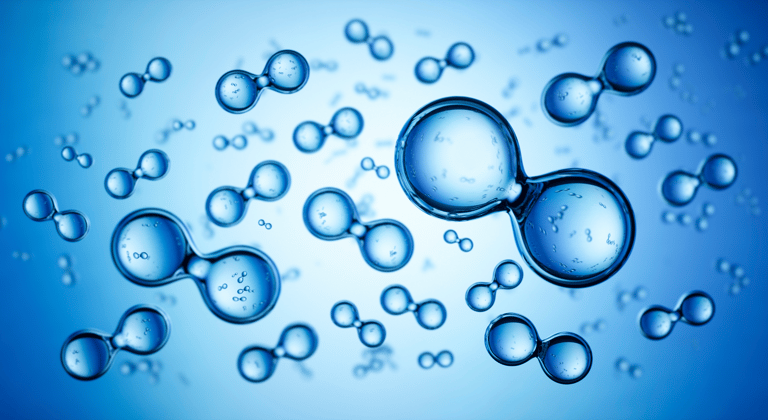

Research into hydrogen gas's role in cardiovascular diseases shows great therapeutic potential, largely due to its powerful antioxidant and anti-inflammatory effects. The shared pathological basis of these diseases includes oxidative stress, inflammatory responses, and apoptosis, all of which hydrogen can directly address.
Mechanism of Action
Hydrogen's protective effects on the cardiovascular system are primarily achieved through the following mechanisms:
Potential Application Areas
This is one of the most researched areas. After a heart attack or coronary artery bypass surgery, inhaling hydrogen gas or injecting hydrogen-rich saline can significantly reduce myocardial damage and improve heart function.
Myocardial Ischemia-Reperfusion Injury
Atherosclerosis
Hydrogen can reduce vascular inflammation and oxidative stress, thereby slowing down the progression of atherosclerosis.
Hydrogen's ability to inhibit oxidative stress and inflammation gives it potential in mitigating heart and vascular damage caused by hypertension and diabetes.
Cardiovascular Complications of Hypertension and Diabetes
The Role of Amino Acids in Cardiovascular Diseases
Amino acids have a very complex role in cardiovascular health and disease. They are not only the basic "building blocks" for the heart and blood vessels but also crucial signaling molecules that regulate blood pressure, inflammation, and vascular function. An imbalance of certain amino acids is closely linked to the onset and progression of cardiovascular diseases.
The heart and vessel walls are composed of various proteins, including actin, myosin, and collagen. The synthesis of these proteins requires an adequate supply of amino acids, particularly glycine, proline, and lysine, which are key to maintaining the structural integrity of the heart muscle and the elasticity of the blood vessels.
Protein Synthesis
Amino acids are important precursors for the synthesis of glutathione, one of the body's primary antioxidants. It helps clear free radicals and reduce oxidative stress on the vascular endothelium, thereby slowing down the progression of atherosclerosis. Additionally, some amino acids have direct anti-inflammatory effects.


Structure and Function Maintenance
1.
Structure and Function Maintenance
Oxidative Stress and Inflammation
Arginine and Nitric Oxide (NO): Arginine is the sole precursor for the synthesis of nitric oxide (NO). Nitric oxide is a powerful vasodilator that relaxes vascular smooth muscles and expands blood vessels, thereby lowering blood pressure. A deficiency or metabolic disorder of arginine can lead to insufficient nitric oxide production, which may contribute to hypertension.
Taurine: Taurine is abundant in the heart and blood vessels and is believed to have multiple cardioprotective effects. It can help lower blood pressure by regulating calcium ion balance and improving vascular endothelial function.
Blood Pressure Regulation
2.
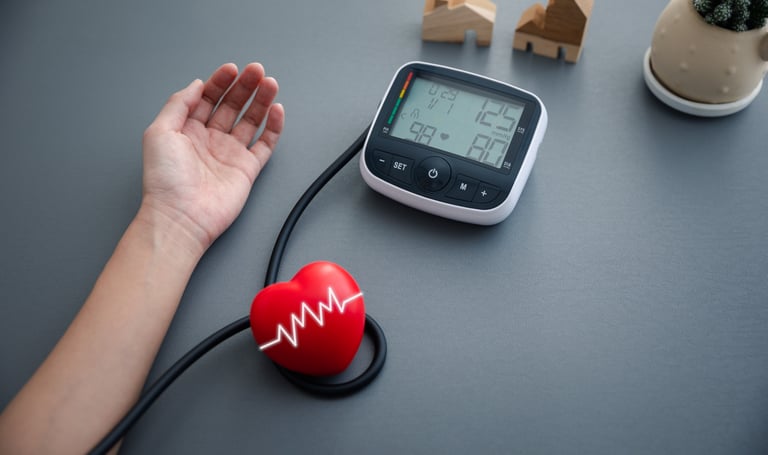

Potential Application Areas
Clinical studies have shown that supplementing with arginine can improve vascular endothelial function and lower blood pressure in hypertensive patients.
Arginine Supplementation
Taurine Supplementation
Taurine supplements have been found in some animal and human studies to help lower blood pressure and improve cardiac function.
Amino acids play multiple roles in cardiovascular health, from fundamental structural maintenance to complex signal regulation. Understanding the role of specific amino acids in cardiovascular diseases provides new avenues for using nutritional interventions to prevent and assist in the treatment of these conditions.
Summary
Bio Young Wellness
Look Young, Feel Young, Stay Young
Contact Us
Bio Young Wellness Sdn. Bhd. @ 2024. All rights reserved.
support@bioyoungwellness.com
Quick Links
202101020499(1420799-P)
